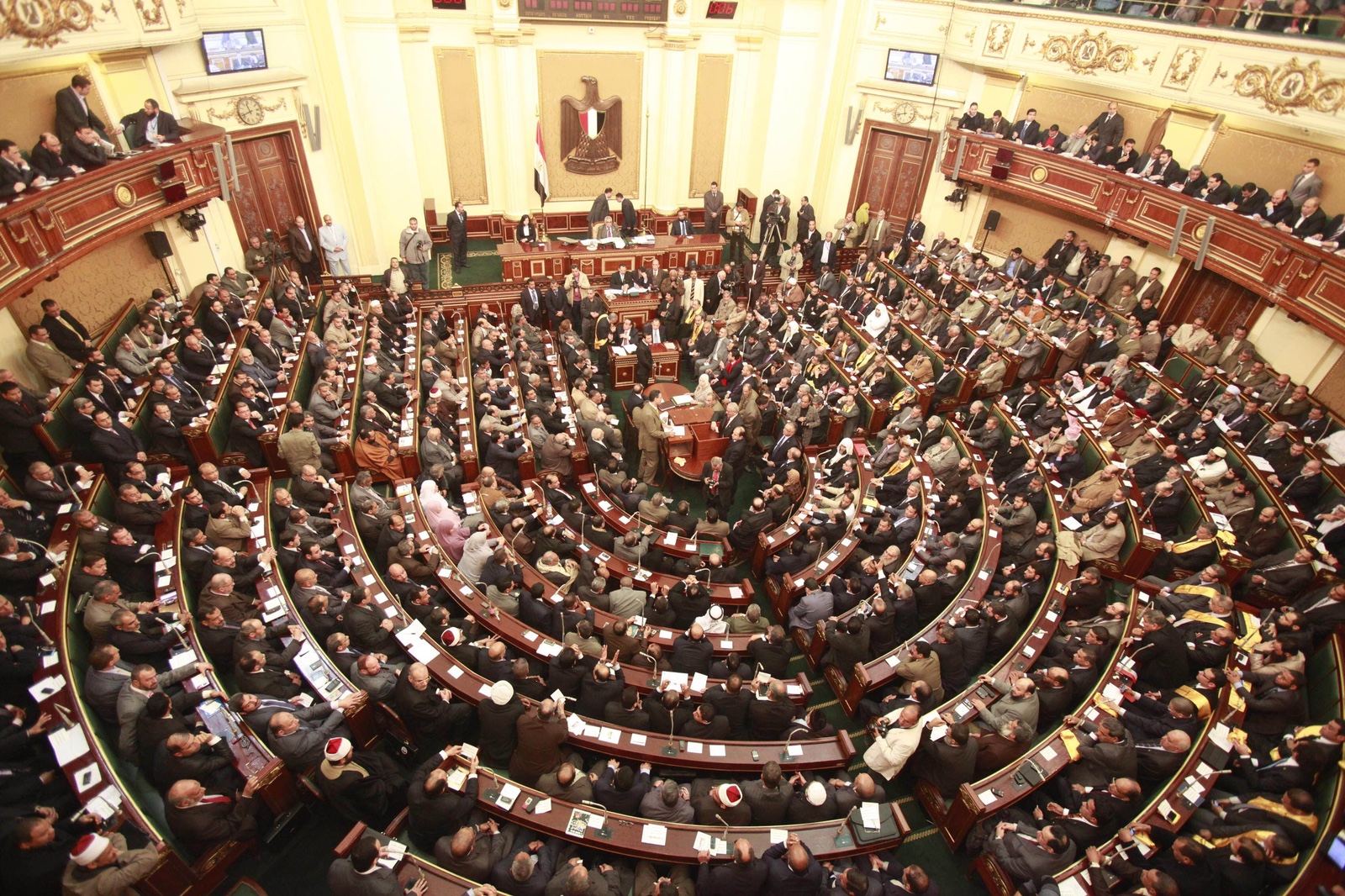Egypt’s proposed constitutional amendments get committee-level approval

House to vote tomorrow on package of constitutional amendments; El Sisi could run for one more term, staying in office until 2030: The House of Representatives’ Legislative and Constitutional Affairs committee has approved a package of constitutional amendments in their final form, setting up a vote on Tuesday by the House general assembly, Youm7 reports. On the crucial issue of presidential terms, the amendments impose a two-term limit and would extend terms in office to six years.
The package settles a wide-ranging debate over how the so-called “transition” clause which would effectively determine (a) the length of President Abdel Fattah El Sisi’s current term and (b) the number of terms he can serve. In its final form, described by House Speaker Ali Abdel Aal as “comfortable” and satisfactory to all, the clause would:
- Extend El Sisi’s current term in office until 2024 (elected in 2018, he would serve a six-year term rather than a four-year stint)
- Make him eligible to run for a final six-year term which, should he do so and win, would see him serve as president until 2030.
Committee members had thrown a range of ideas on the table, including proposals that would variously have seen the president eligible to serve until 2024, 2026, 2034 or 2038. Another idea on the table would have lengthened presidential terms by just one year to five instead of six years.
The amendments will bring back the upper house of parliament: The package would restore the bicameral parliament by bringing back the Shura Council (formerly the nation’s upper house of parliament) according to the final draft circulating in the press. The upper house would be rebranded as a senate and would be responsible for ratifying international treaties as well as approving the overall direction of state policy and plans for economic and social development. The senate will be composed of at least 180 members, one third of which would be appointed directly by the president and the remaining two-thirds through popular elections. The mix of elected and appointed senators largely mirrors how members were elected to the pre-revolution Shura Council.
Also in the package:
- We could have one or more vice presidents: The amendments would give the president the right to appoint one or more VPs, and specify their roles and responsibilities. The president could delegate any tasks to the VPs and designate them president pro tempore. If no VPs are in office, the prime minister fulfills the latter role.
- A 25% quota for women in the House of Representatives, which will be mandated to have a minimum of 450 elected representatives.
- Judiciary: The president would have the final say in appointing pre-nominated judges and the prosecutor general.
- Deepening the role in society of the Armed Forces, which the package defines as an institution “of the people tasked with safeguarding the land, the constitution, democratic and personal rights, the state, civilian rule, and the gains of the people.”
- SCAF gets signoff on defense minister: Giving the Supreme Armed Forces Council the final say in appointing the defense minister.
So, when do we vote? That’s not yet clear. National Election Authority Deputy Chairman Mahmoud Hilmi El Sharif denied overnight earlier reports that the government was preparing to hold the referendum between Monday and Wednesday next week, Youm7 reports. He also said that voter figures published by the media were incorrect, claiming that more than 61 mn Egyptians will be eligible to vote, rather than 51 mn.